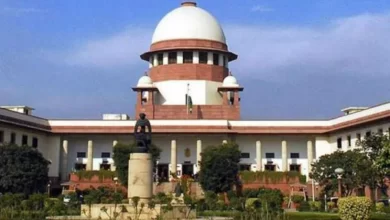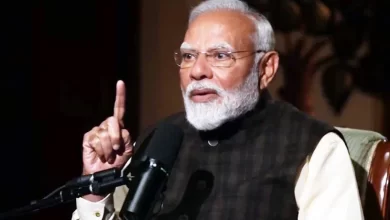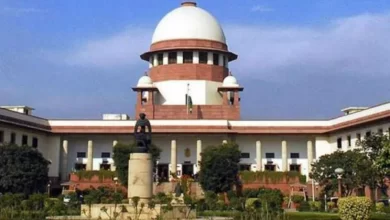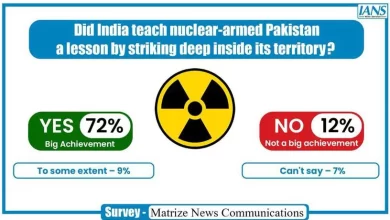National
Prez Polls: 100% Polling in 11 States; 99% Turnout as Voting to Elect India’s 15th President Ends | 10 Points

Voting for the presidential election – a contest between BJP-led NDA’s Droupadi Murmu and opposition’s Yashwant Sinha – ended on Monday. A total turnout of 98.9 per cent was recorded in the parliament house, said returning officer PC Mody.
Going by the stand taken by various parties, Murmu looks set to become the 15th president of India, making her the first tribal and the youngest ever at 64 years to hold the country’s top post.
The Best Tip to Traveling When You Have a Small Budget

The counting of votes will take place on July 21 while the new president will take oath on July 25, as per the schedule announced by the Election Commission.
Here’s all you need to know about the election that began at 10 am and concluded at 5 pm:
- The Election Commission of India said polling was held peacefully across states and union territories. Out of a total of 4,796 electors in the list of electoral college, over 99 per cent cast their vote while 100 per cent voting by MLAs was reported from Chhattisgarh, Goa, Gujarat, Himachal Pradesh, Kerala, Karnataka, Madhya Pradesh, Manipur, Mizoram, Puducherry, Sikkim and Tamil Nadu, the ECI added.
- After the voting, returning officer PC Mody said out of 736 electors (comprising 727 MPs and nine MLAs) permitted by the Election Commission to vote at the parliament house, 728 (719 MPs and nine MLAs) cast their vote.
- The returning officer had earlier said six MPs did not cast their vote, but the figure was later revised to eight after recompilation of data. Those who chose to abstain include two MPs each from the BJP and Shiv Sena, and one each from the Congress, Shiv Sena, Samajwadi Party, Mayawati’s Bahujan Samaj Party and Asaduddin Owaisi’s AIMIM.
- Prime Minister Narendra Modi, home minister Amit Shah as well as Congress leaders Sonia Gandhi and Rahul Gandhi were among those who cast their vote at the parliament house. Voting for the presidential poll also took place in state assemblies.
- Finance minister Nirmala Sitharaman cast her vote wearing a full PPE kit as she is down with Covid-19 after her return from Bali, Indonesia, where she attended the G20 Finance Ministers’ meeting. Official sources said she contracted Covid-19 during her visit and is taking precautions not to infect others. Like her, power minister RK Singh also cast his vote in PPE kit as he, too, is suffering from the viral infection.
- Shiromani Akali Dal MLA Manpreet Singh Ayali did not cast his vote and announced his “boycott” of the polls over “unresolved” issues related to Punjab. He blamed the BJP-led Centre as well as the previous Congress-led government in the state for “failing to resolve” said issues. Ayali went against his own party, which had announced its support to Droupadi Murmu, and said in a video message that he was boycotting the poll at his own level. He also said the party leadership did not consult him before deciding to support Murmu.
- Congress MLA Kuldeep Bishnoi from neighbouring Haryana, who cross-voted in last month’s Rajya Sabha elections, once again said he had voted as per his “conscience”. Indicating he had supported NDA candidate Droupadi Murmu, Bishnoi said, “Like Rajya Sabha, I have cast my vote in this election too as per my conscience.”
- Murmu looks set for an easy victory – she needs over 50 per cent votes — as several non-NDA parties, too, have pledged support to her, primarily for her tribal identity. If elected, she will be the 15th President of India, and the first tribal person to hold the post. Even the Congress’s partner Jharkhand Mukti Morcha chose to go with Murmu, a former governor of the state. Uddhav Thackeray’s stunted Shiv Sena is also with her as these states have significant tribal populations. In Andhra Pradesh, for instance, all sides are with Murmu.
- If Murmu wins, she will not just be the first tribal person to hold the top post but also be just the second woman overall; the first President born in Independent India; and the youngest ever at 64. The current President, Ram Nath Kovind – whose stint ends July 24 — was just the second Dalit person to hold the post.
- Yashwant Sinha, a former bureaucrat who remained a minister in BJP regimes before a breakup some years ago, is backed by the Congress and the Left, besides others in a group put together, largely, by West Bengal chief minister Mamata Banerjee. He was chosen after three others – NCP chief Sharad Pawar, former J&K CM Farooq Abdullah and Mahatma Gandhi’s grandson Gopalkrishna Gandhi – declined the offer.







